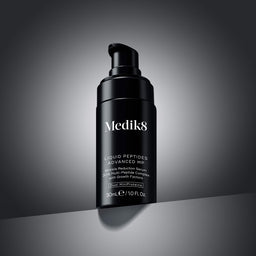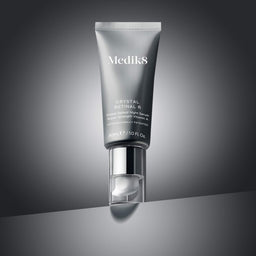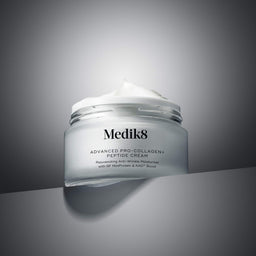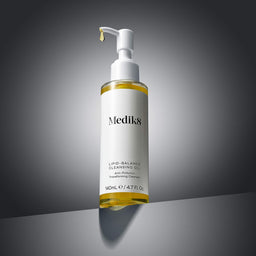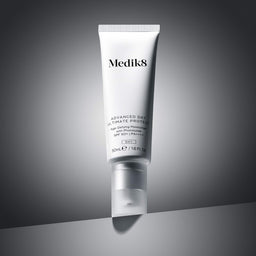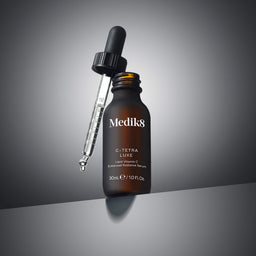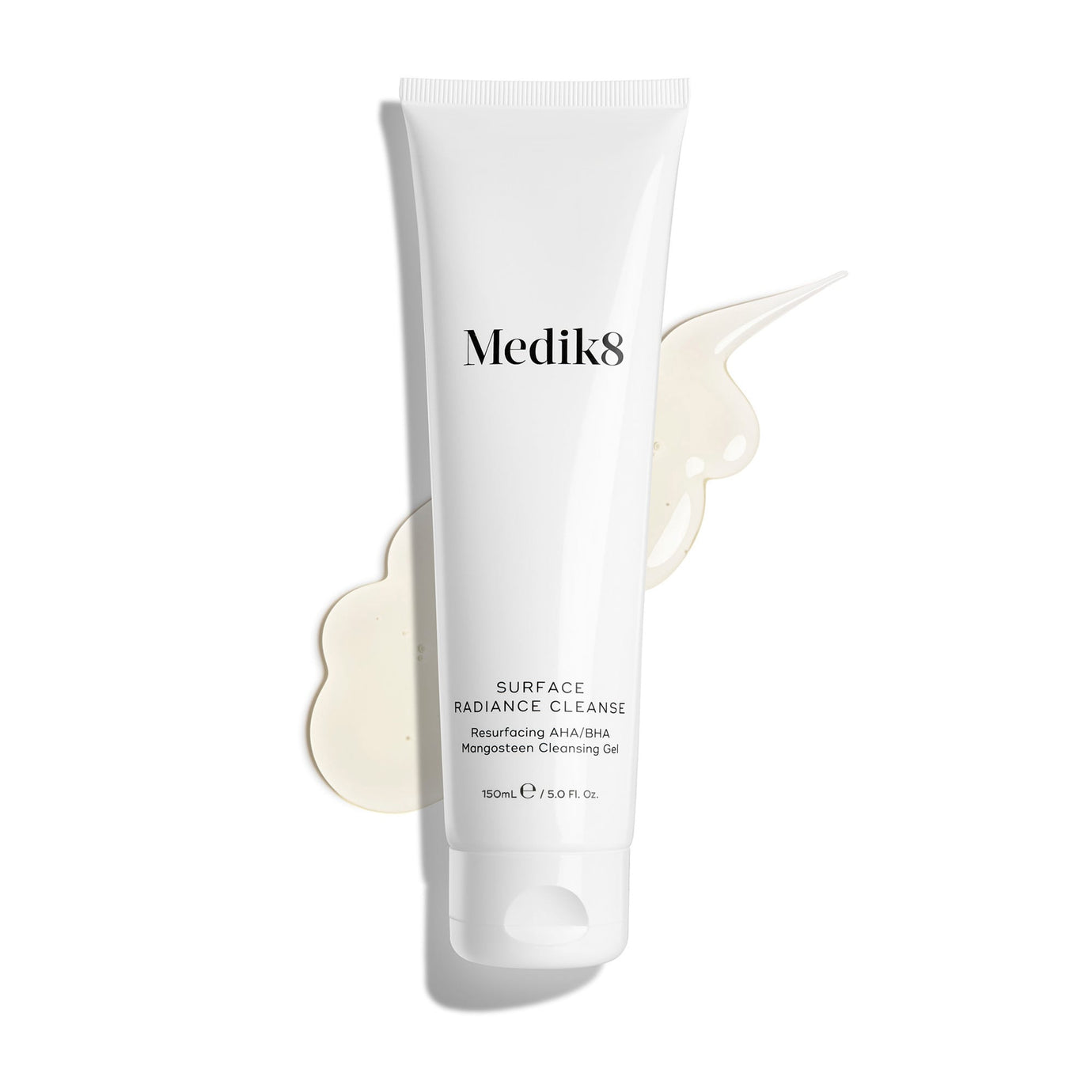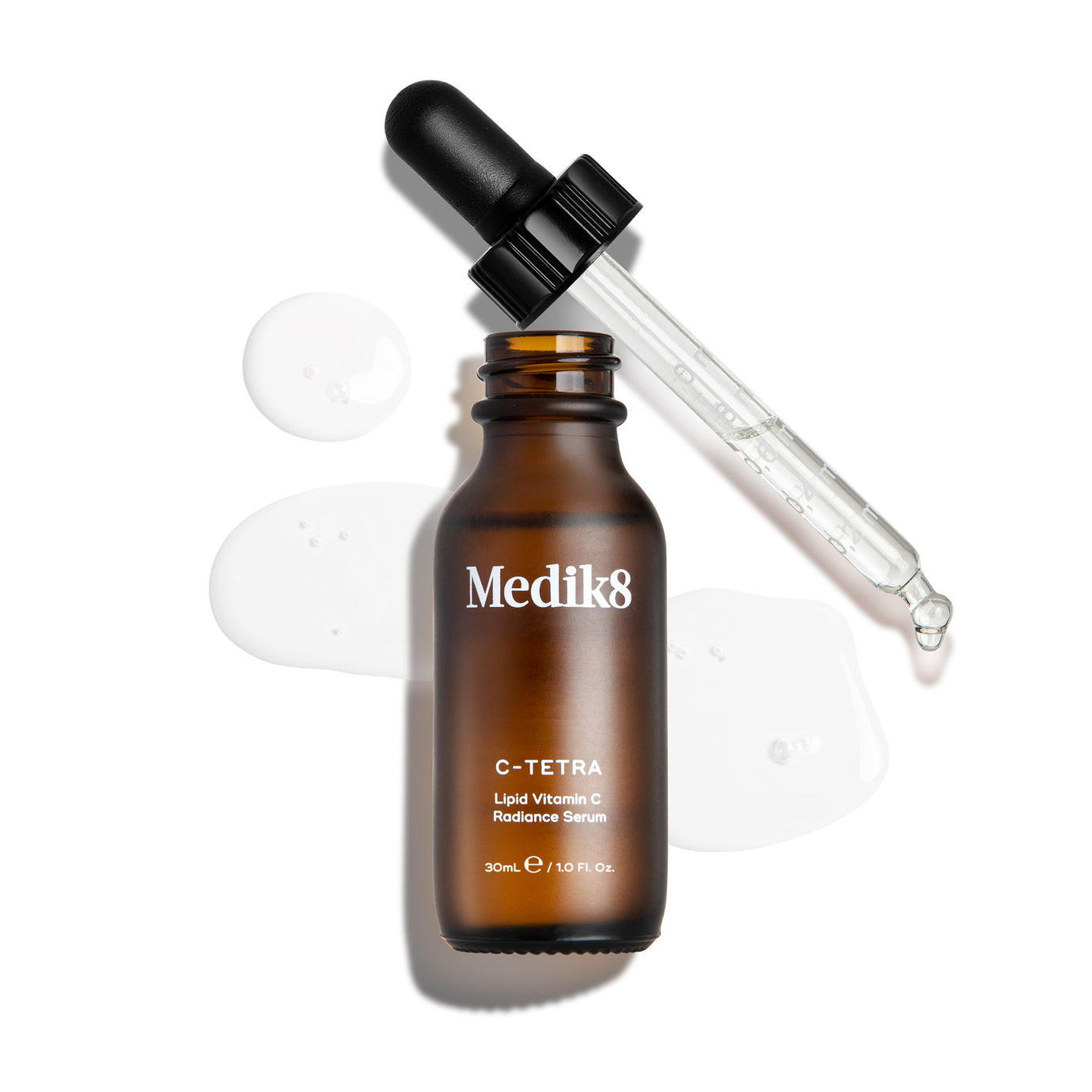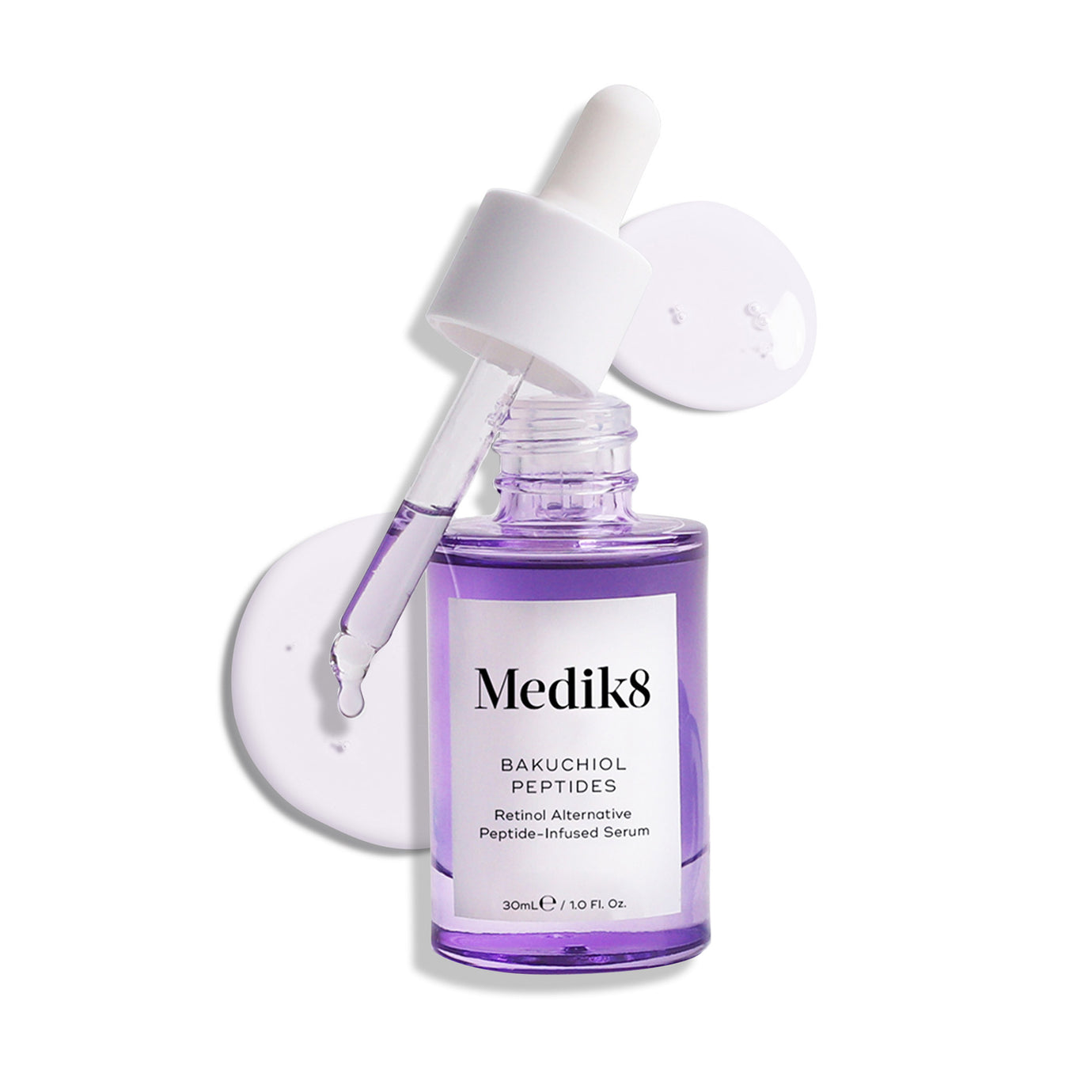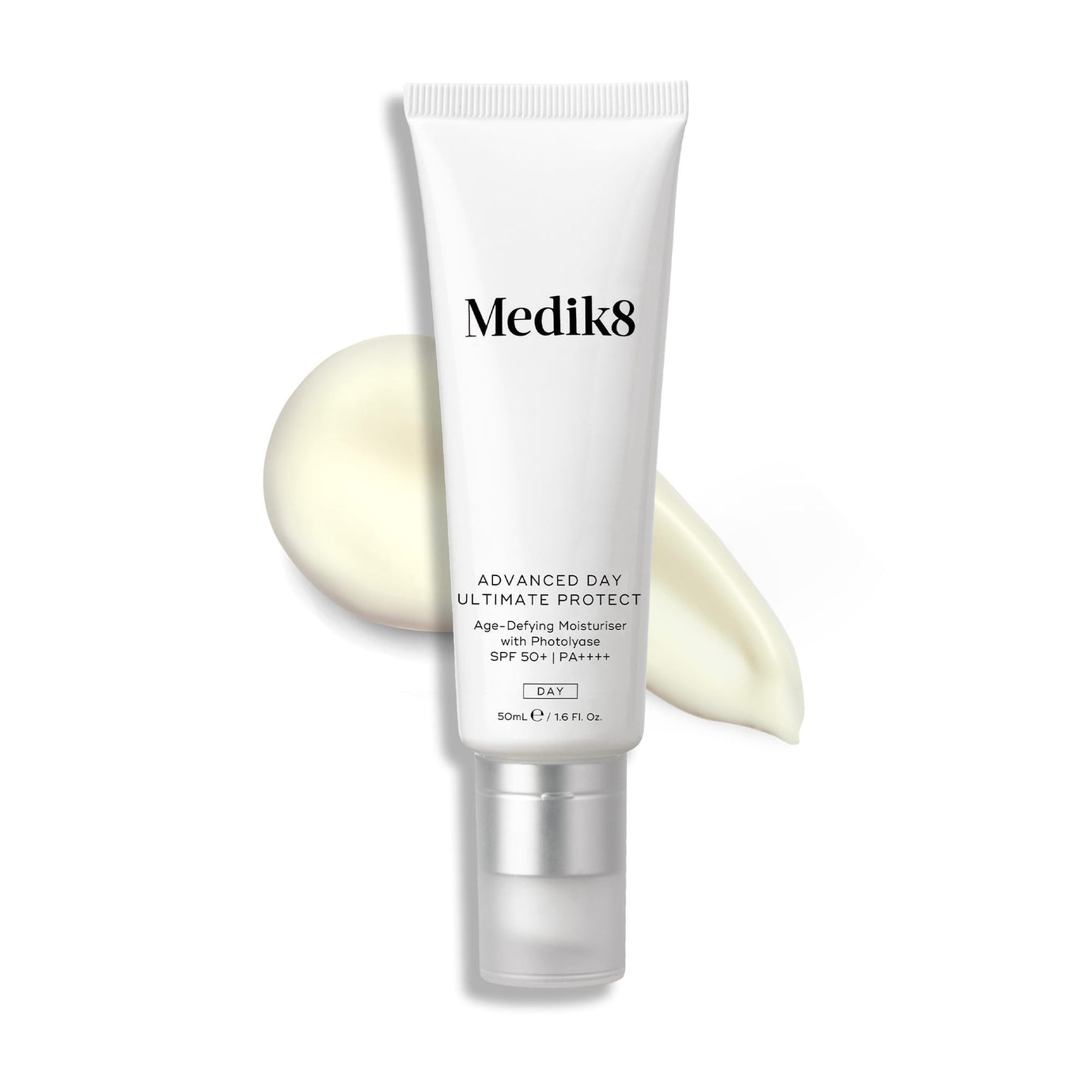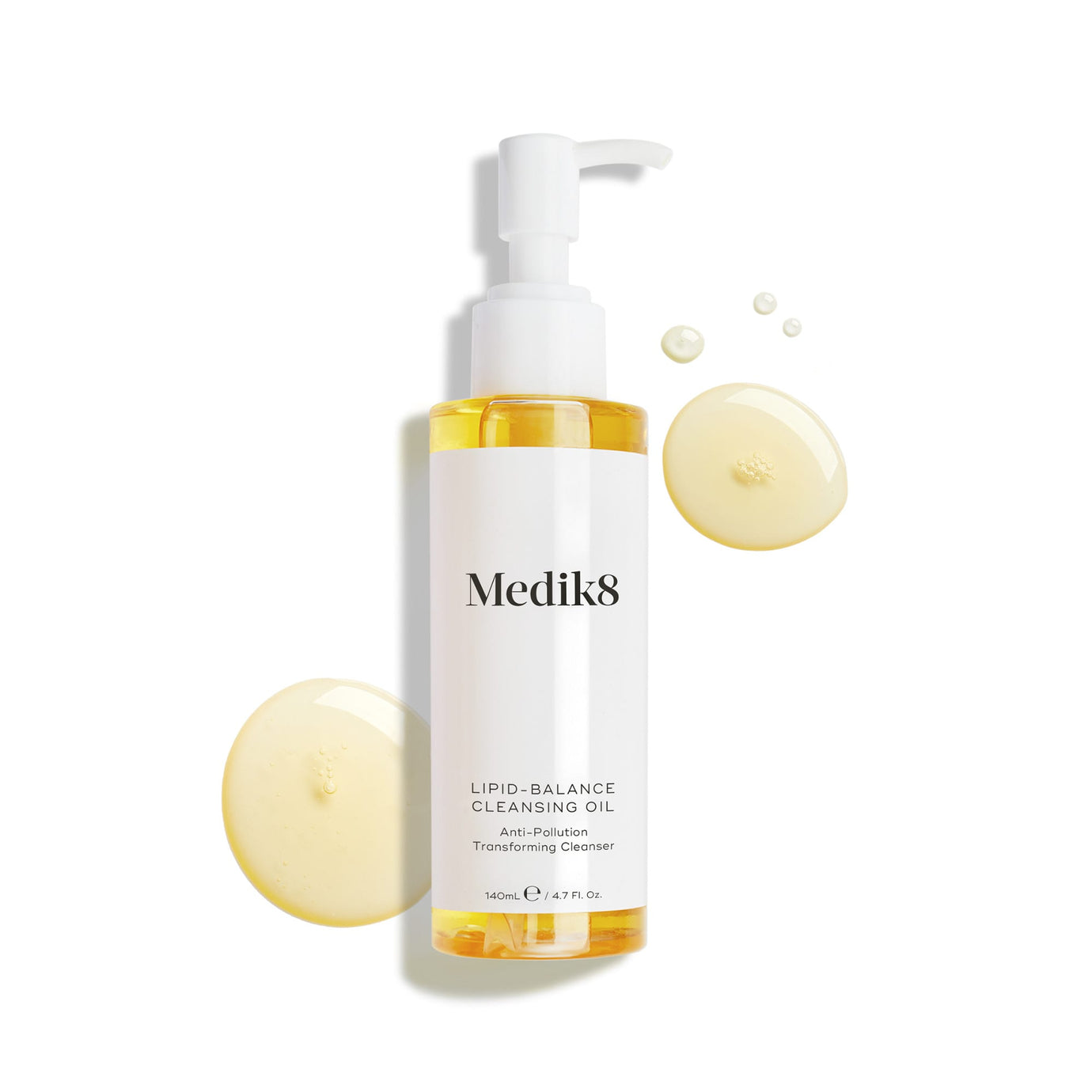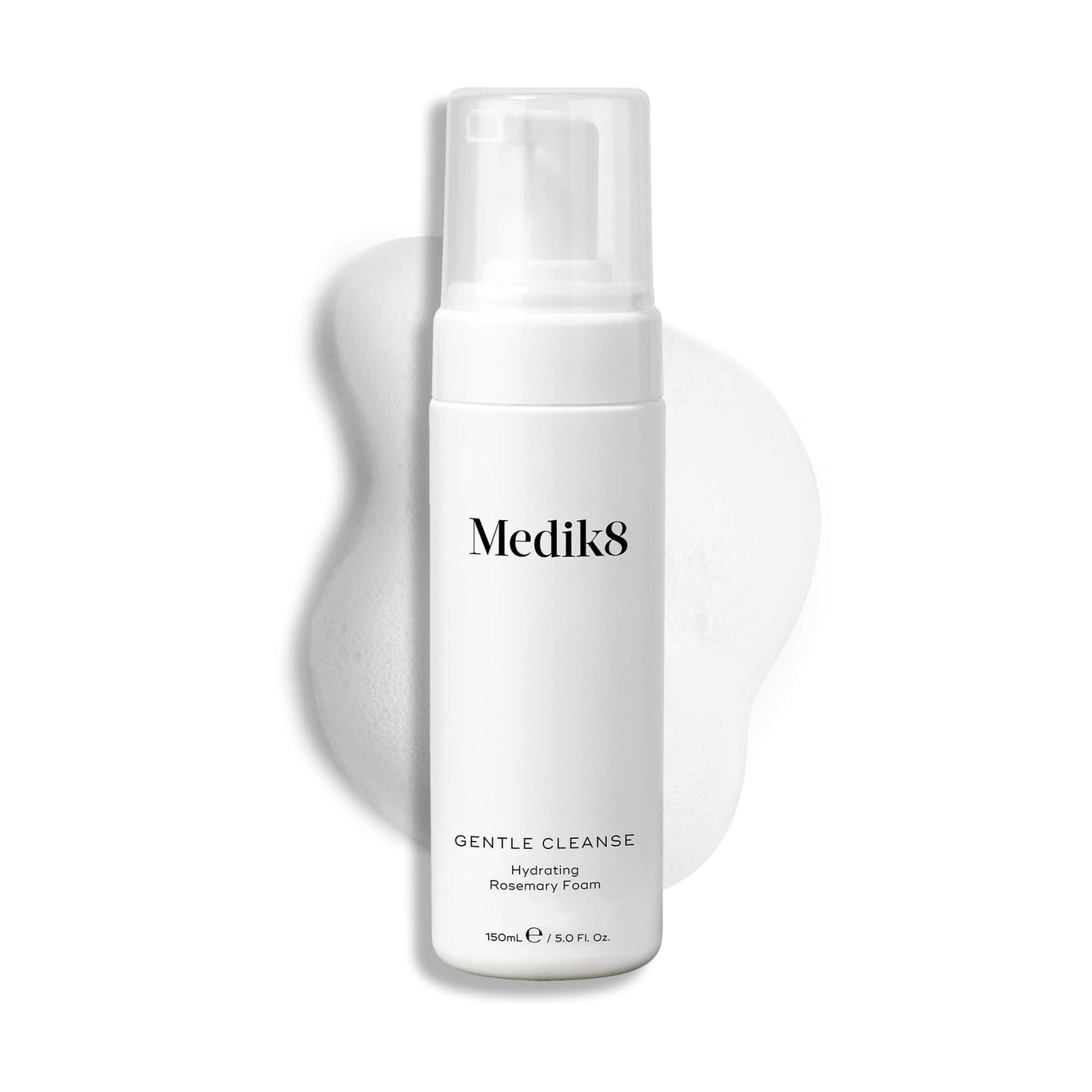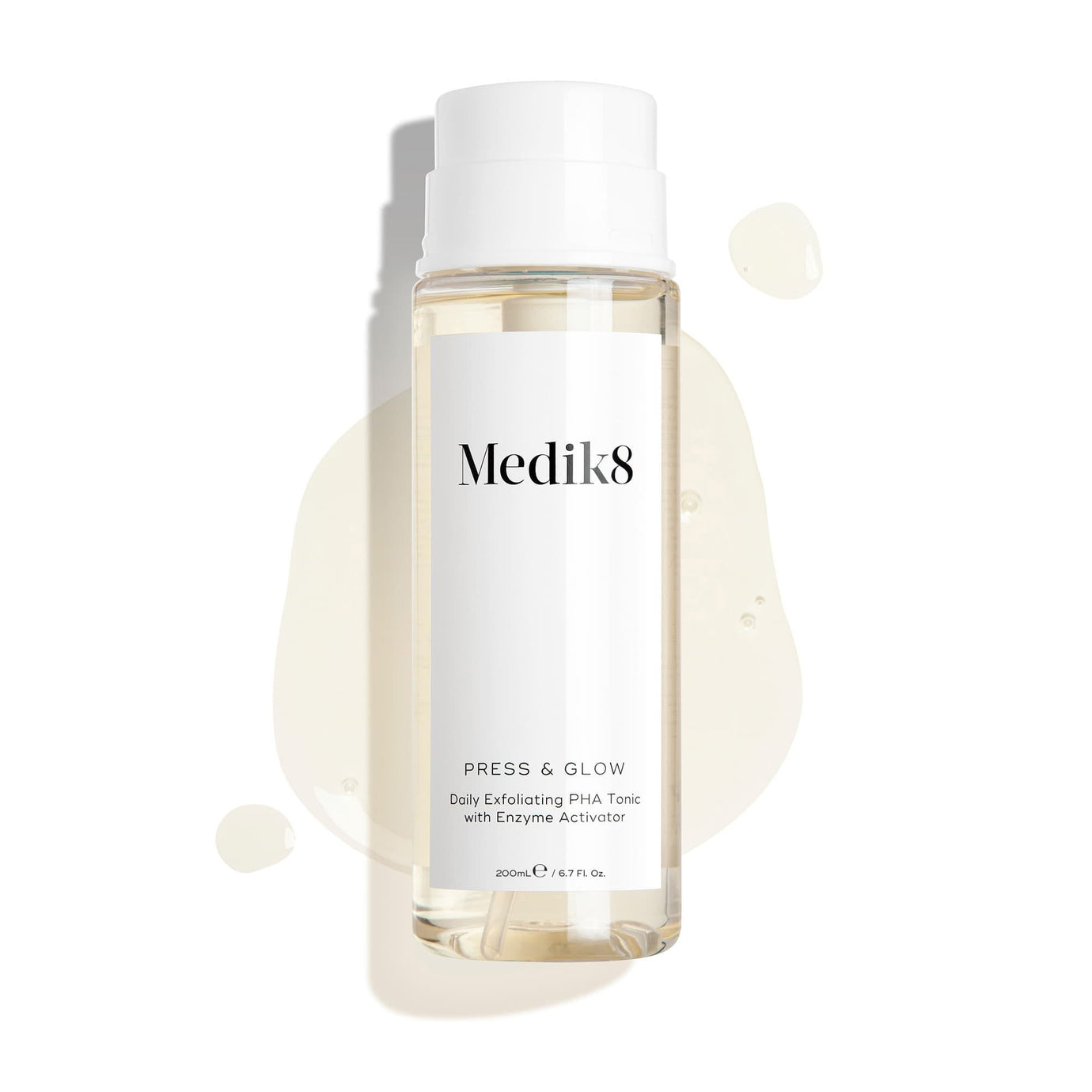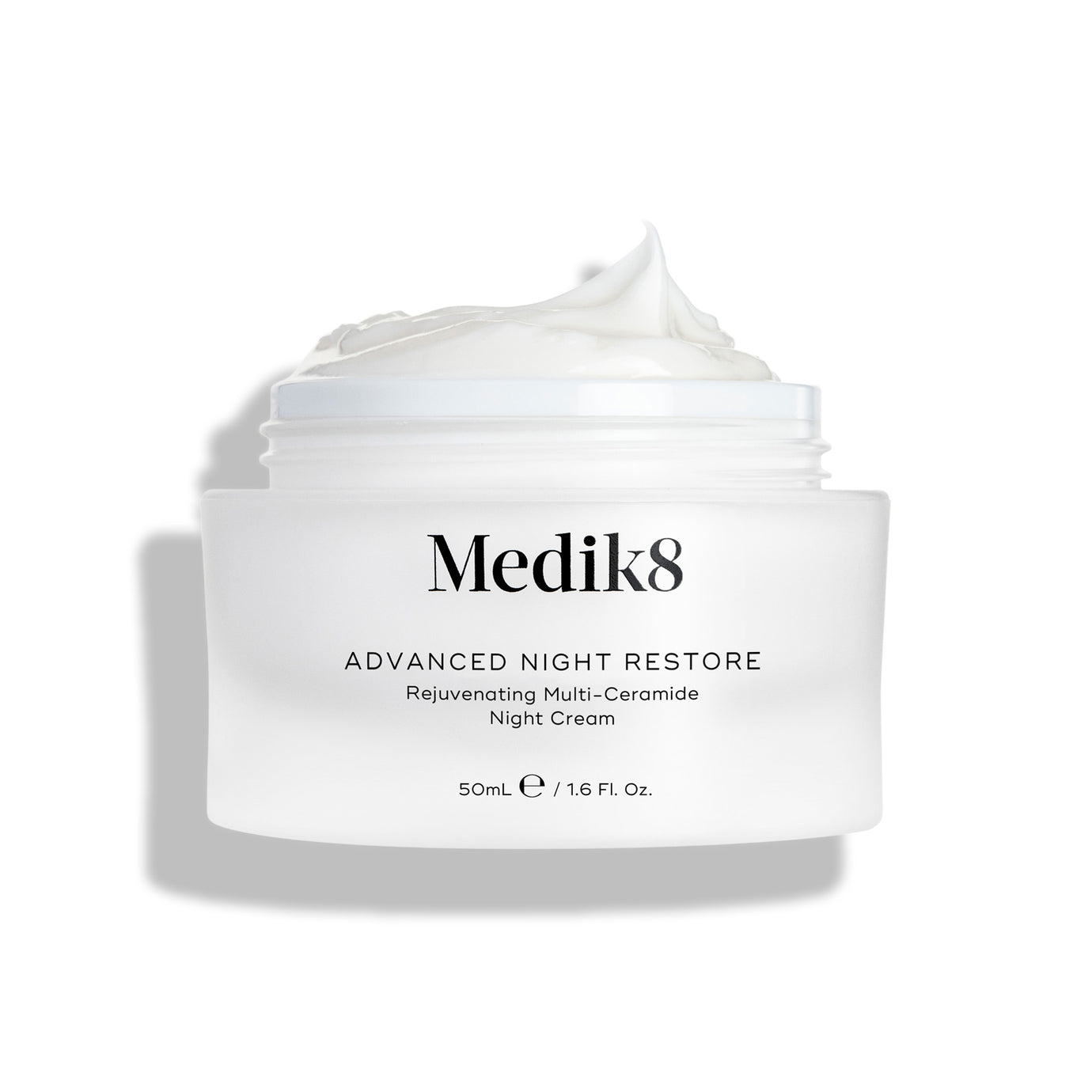Everything You Need to Know About Bakuchiol: Retinol’s Natural Alternative
Written by: Lucy Partington
Updated: 11 April 2024
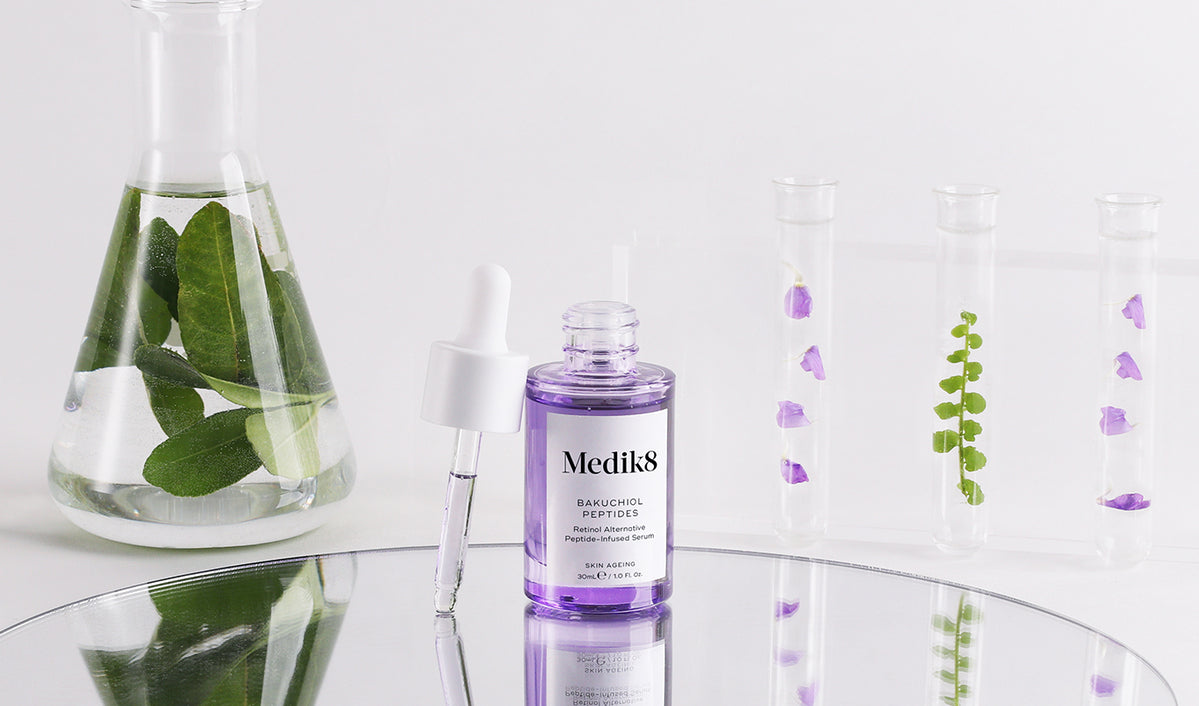
It goes without saying that Vitamin A is the gold standard in age-defying skincare ingredients. It’s a real powerhouse when it comes to improving the overall health and appearance of your skin – however, it isn’t suitable for everybody; namely those with incredibly sensitive skin and those who are pregnant or breastfeeding.
But, all is not lost, because in recent years a new ingredient has come to the fore. Enter: bakuchiol, a clinically proven, natural alternative to retinol. It's an ingredient that’s gradually been growing in popularity, especially amongst the sensitive skin community, and rightly so, because bakuchiol does everything we know vitamin A does for the skin – including speeding up cell renewal, promoting collagen production and keeping skin healthy – but without any of the typical side effects that can be associated with retinoids. Sounds too good to be true, right? But trust us on this one, it really is brilliant.
What is bakuchiol?
Bakuchiol (pronounced bah-koo-chee-ol) is a naturally occurring compound found in both the seeds and leaves of the psoralea corylifolia (babchi) plant native to eastern Asia. It has been studied for its ability to stimulate collagen production, reduce the look of fine lines and wrinkles, improve skin texture and even out tone. Plus, it’s been shown to have antioxidant and anti-inflammatory properties.
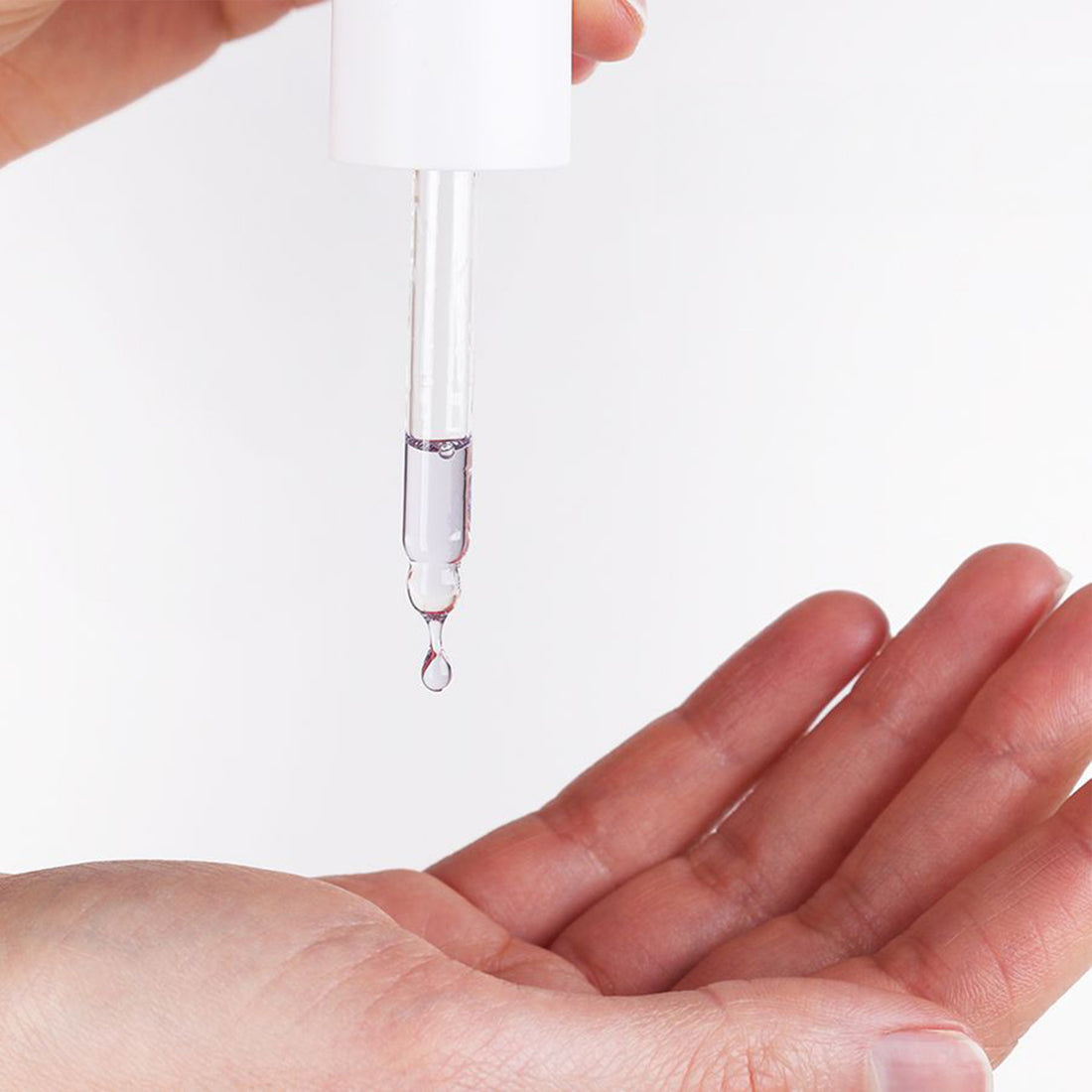
The bakuchiol facts:
✓ Benefits: Hydrating, reduces the appearance of wrinkles, improves skin firmness, reduces the appearance of pores.
✓ Best for: all skin types, particularly sensitive skin.
✓ How often can it be used: Up to twice a day, once in the morning and once in the evening.
✓ Pair it with: Other hydrating and plumping ingredients, including hyaluronic acid, ceramides, PHAs and squalane.
✓ Avoid using it with: strong acids, like glycolic acid, which may reduce its effectiveness.
How does bakuchiol differ from retinoids?
Both bakuchiol and retinol offer impressive age-defying benefits, but there are some key differences – particularly in their origin, potential side effects, how they work and suitability for different skin types.
While bakuchiol is a natural compound, retinol is a synthetic form of vitamin A. They both work to help promote skin cell turnover and stimulate collagen production in the skin, in turn helping to reduce the appearance of fine lines, wrinkles and hyperpigmentation.
Chances are, you’ve heard of the side effects that some people experience when introducing retinol into their routines – which includes irritation, dryness and redness – but the great thing about bakuchiol is that it’s generally considered to be much more gentle. There are fewer side effects, simply because it is less likely to cause irritation and that’s why it’s more favourable amongst those with sensitive skin.
Retinol is an ingredient that’s widely available and has been studied for many years, whereas bakuchiol is near the beginning of its journey. However, it is gaining popularity and is becoming more commonly used across a variety of skincare formulations.
How does retinal compare?
Just like retinol, retinal is a derivative of vitamin A and so the comparisons between it and bakuchiol are very similar. Both products offer line reducing, skin firming, hydrating benefits, but you will see quicker, more visible results using retinal compared to bakuchiol. However, if your skin is sensitive or you’re pregnant and/or breastfeeding, bakuchiol is a natural alternative that will offer a similar result, although it will take longer to see any changes.
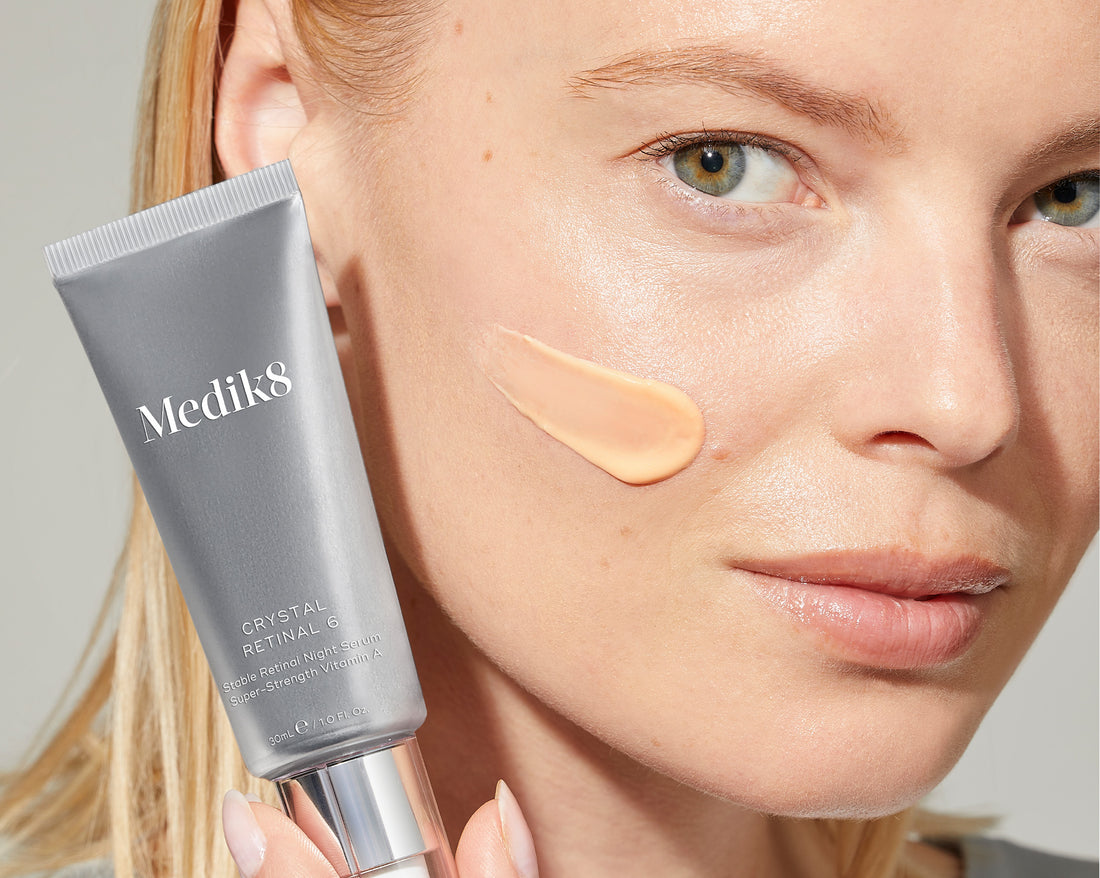
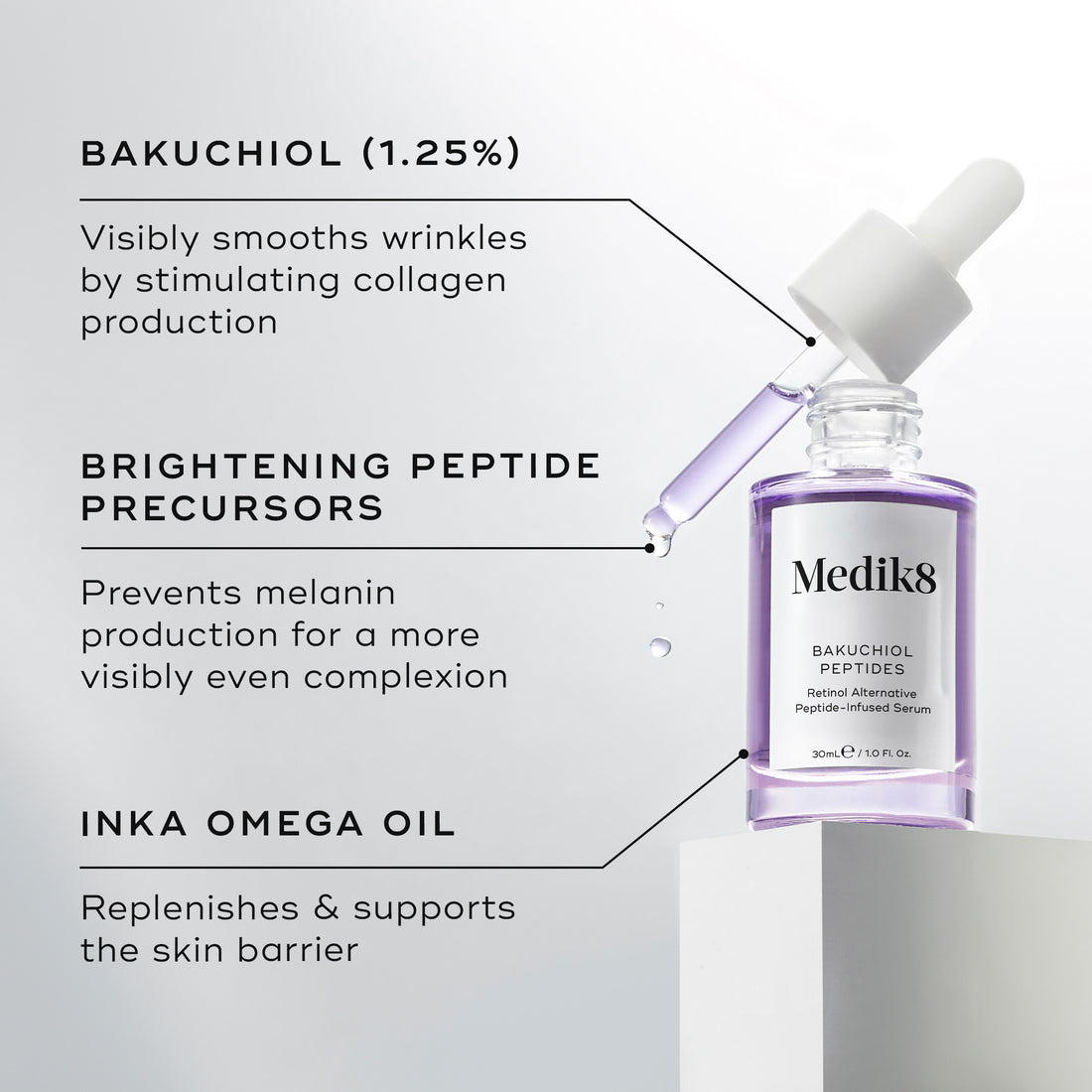
Can bakuchiol replace vitamin A in skincare?
While bakuchiol can be used in place of vitamin A in a skincare routine for those with sensitive skin or who are pregnant and/or breastfeeding, it can’t directly replace retinoids like for like. If it’s fast, visible results that you’re looking for, vitamin A would be the better option – specifically retinal, because it works 11x faster than retinol*.
However, if you prefer to use natural ingredients or are concerned about the possible side effects of using vitamin A then bakuchiol is a great alternative. It’s worth noting that you won’t see results quite as powerful as you would with using vitamin A, but the choice between the two comes down to your own individual preferences, personal circumstances and desired outcome.
Benefits of bakuchiol
There are several benefits for overall skin health and appearance that bakuchiol has, and there’s a reason why its popularity is growing in the skincare world. The main benefits include:
Age-defying properties
Bakuchiol has been shown to stimulate collagen production in the skin, and in turn that will help maintain skin’s elasticity and firmness, therefore reducing the look of both fine lines and wrinkles.
Helps even skin tone
Overtime, bakuchiol can help to fade the appearance of dark spots, pigmentation and acne scars, and as a result it will help provide a visibly more even-toned, clearer-looking complexion.
More gentle on the skin
A gentle ingredient that is well tolerated by almost all skin types, including sensitive skin. Its anti-inflammatory properties will help soothe and calm the complexion.
Suitable for all skin types
In comparison to retinol, retinal and other derivatives of vitamin A, bakuchiol is much more gentle and unlikely to cause any irritation, therefore it is suitable for a much wider range of skin types, particularly those who are pregnant and/or breastfeeding, or who have very sensitive skin and cannot tolerate vitamin A.
A powerful antioxidant
Bakuchiol has been shown to help protect the skin from damage caused by free radicals, including pollution and exposure to UV rays.
Naturally derived
Bakuchiol comes from the seeds and leaves of the babchi plant, making it an all-natural alternative to vitamin A and therefore a good choice for anybody who prefers to have a plant-based routine.
Photostable
Unlike vitamin A which is only suitable to use at nighttime, bakuchiol has the added benefit of being photostable, meaning it can be used during the daytime as well as at nighttime as it won’t break down when exposed to the sunlight.
Please note; The research supporting bakuchiol’s effects on the skin is promising but is still very new, and there is much more clinical research to support vitamin A. Vitamin A is still the best option for people who are not actively avoiding it.
Potential risks of using bakuchiol
While there aren’t many downsides of using bakuchiol, especially since it's considered safe and is well-tolerated by most people, it’s always good to be aware of any risks that could be associated with it, and that’s why we would always advise consulting with a dermatologist before introducing a new product or ingredient into your routine.
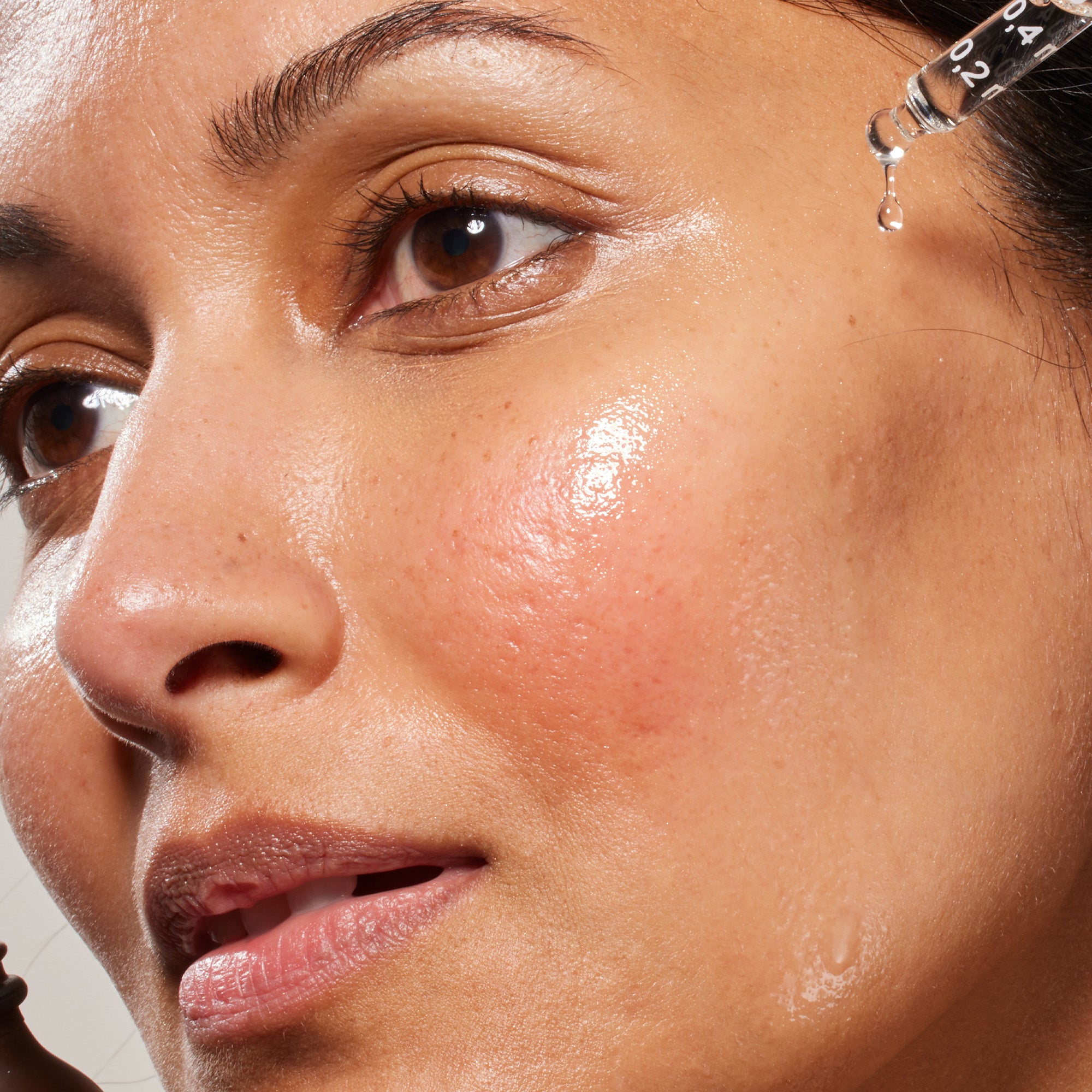
Skin irritation:
Although bakuchiol is much more gentle than retinol, there is still a small chance that it could irritate skin, especially if you have very sensitive skin. We would always recommend patch-testing any new ingredients or products, ensuring you check for signs of redness or irritation.
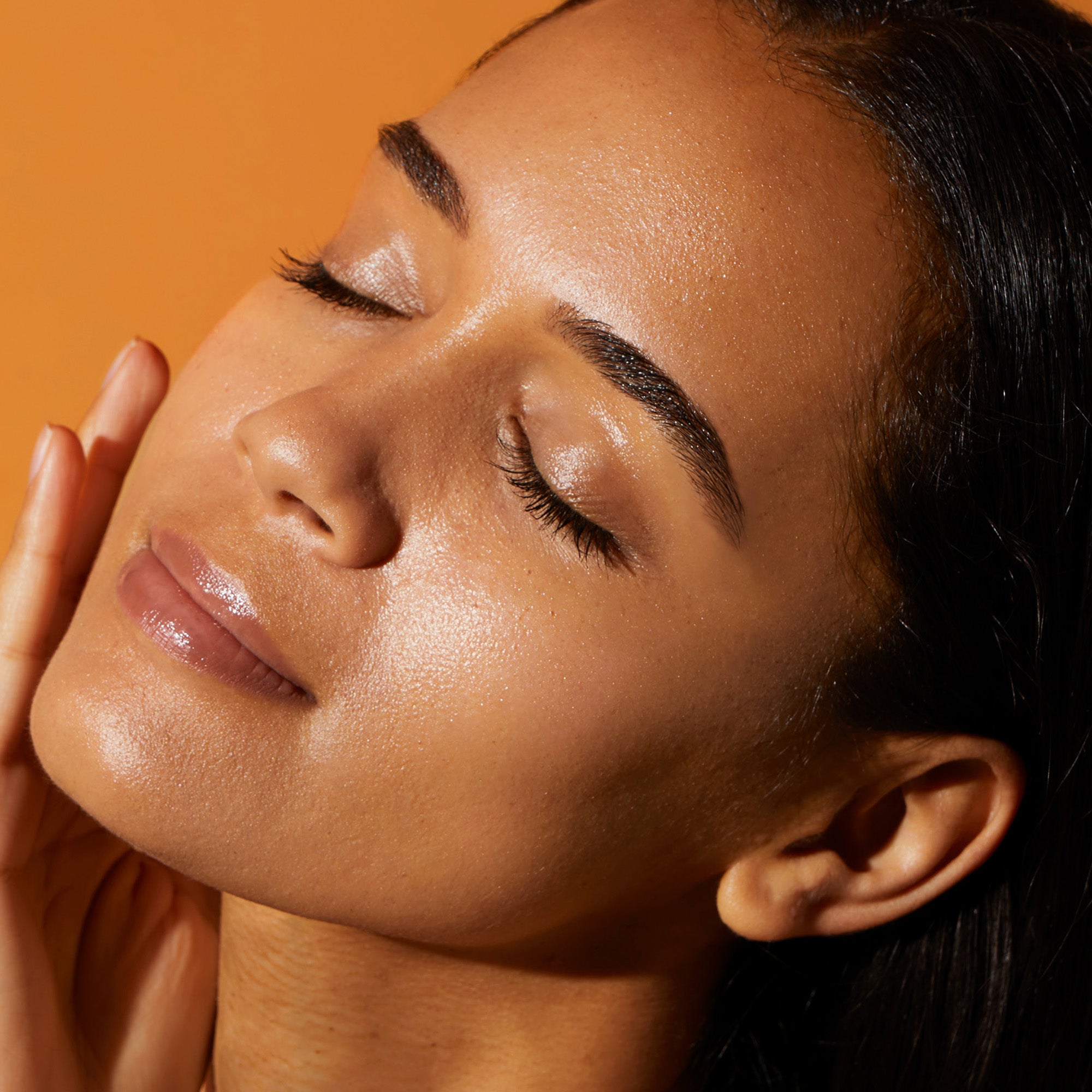
Mixing it with other products:
If you’re using prescription products or other active ingredients in your routine, it’s best to consult with a dermatologist if you’re unsure about incorporating bakuchiol into the same routine to prevent any unwanted sensitivity or irritation.
Can you combine bakuchiol with other skincare ingredients?
Generally speaking, yes, you can combine bakuchiol with other skincare ingredients. The ones that compliment bakuchiol’s benefits the most include hyaluronic acid, vitamin C and ceramides. Niacinamide, peptides and gentle exfoliants can also work well with bakuchiol.
However, as with everything, there are a few ingredients that it’s best not to use at the same time as bakuchiol. Those include retinoids, especially prescription-strength ones – like tretinoin – as well as benzoyl peroxide and strong vitamin C formulations, especially if you have sensitive skin. We also recommend that you don’t combine bakuchiol with vitamin A formulas, as this could cause your skin to become irritated and sensitive.
How to use bakuchiol in your skincare routine
One of the many benefits of using bakuchiol is that it’s easy to build into an existing skincare routine, and it’s also a photostable ingredient meaning it doesn’t break down in the sunlight and can therefore be used both morning and night.
For us, a good routine looks like this:
In conclusion
Overall, there’s no denying that bakuchiol really is nature’s alternative to retinol and its growth in popularity is justified. It is a gentle and incredibly effective, plant-based alternative and its ability to address signs of ageing, to act as an anti-inflammatory and an antioxidant are seriously impressive.
However, it’s always worth remembering that it won’t work quite as fast or effectively as retinal, but if you fall into the camp of people that aren’t able to use vitamin A for certain reasons, then bakuchiol really is the next best thing – and we also love that it can be used during the day for maximum efficacy.
FAQ's
Bakuchiol offers several benefits as a natural-alternative to retinol, including providing similar age-defying benefits with fewer side effects, making it very effective for anybody with particularly sensitive skin or for those who are breastfeeding or pregnant.
Several studies have shown that bakuchiol is able to provide similar age-defying benefits to retinol, including stimulating collagen production, reducing the look of fine lines and wrinkles, improving skin texture and evening out skin tone. However, retinal is always going to work more quickly and effectively – even in comparison to retinol (retinal works 11x faster than retinol*) – so whilst bakuchiol is effective, it all comes down to individual skin type and sensitivity.
Bakuchiol usually comes in serum form, so it is best applied after cleansing and before sunscreen in the morning and moisturiser in the evening. We recommend using six drops of our Bakuchiol Peptides both morning and night, massaging it across the face, neck and decolletage.
While you can use bakuchiol every day – twice a day in fact – it depends on what else is in your routine as to whether you do. We wouldn’t recommend pairing it with highly potent actives or prescription ingredients. Also, make sure to always apply sunscreen in the morning, to help protect your skin against the sun’s harmful rays.
At Medik8, we recommend not to pair vitamin A with bakuchiol in the same routine. Both ingredients provide the skin with similar results, therefore, using them together could potentially cause the skin to become irritated and sensitive. If you can use vitamin A, then use it. We suggest only using bakuchiol if you’re intolerant to vitamin A or are pregnant and/or breastfeeding.
As with all skincare, the length of time it takes to see results really depends on several factors, including individual skin type, the concerns you’re targeting and how often you’re using it.
While it is generally considered safe for people who are pregnant or breastfeeding to use bakuchiol, we would always recommend consulting with your doctor or midwife before incorporating it into your routine.
*G. Siegenthaler et al., Retinol and retinal metabolism, Biochemical Journal, 1990, 268, pp 371-378

Lucy Partington
Lucy Partington has been a beauty editor for over a decade and has written for titles including Stylist, Cosmopolitan, ELLE, British Vogue and GQ Middle East. She loves trying new sunscreens, cleansing her face at the end of a long day and is on a constant quest for glowing skin.
